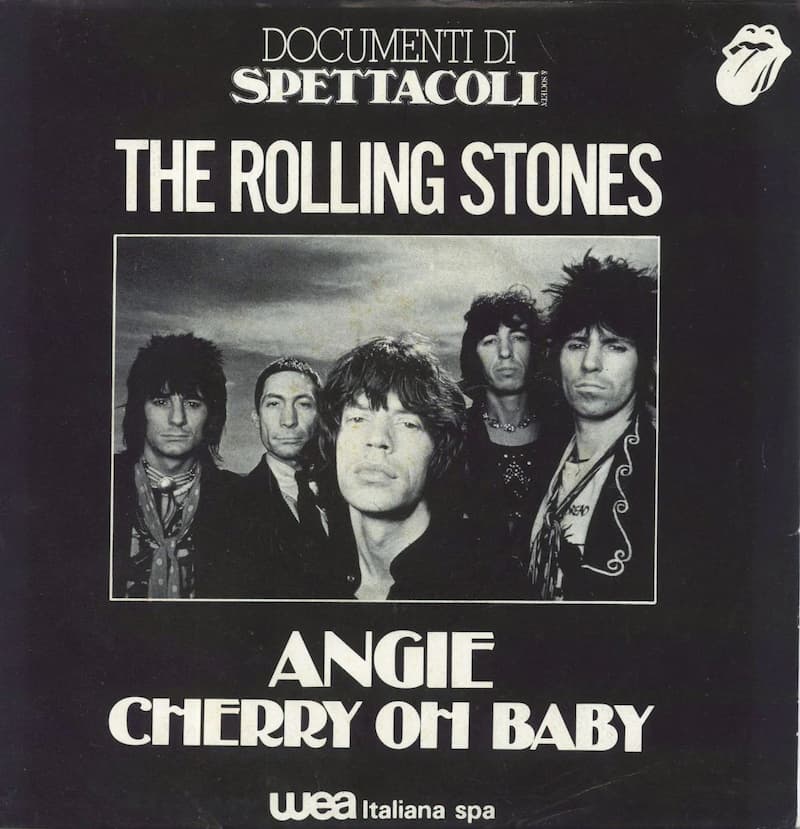
The legendary English rock band, The Rolling Stones, delivered an unforgettable hit with their 1973 classic “Angie”, released as the lead single from the acclaimed album Goats Head Soup on August 20, 1973. Crafted by the legendary duo Mick Jagger and Keith Richards, and produced by Jimmy Miller, the track holds a magnetic aura, mesmerizing fans even decades later. It was recorded across sessions in Kingston, Jamaica, and London, featuring the remarkable piano artistry of Nicky Hopkins and lush string arrangements by Nicky Harrison.
From its debut at No. 75 on the Billboard Hot 100 in September 1973, “Angie” soared to the pinnacle, hitting No. 1 just over a month later and captivating audiences for 15 weeks straight. Its acclaim echoed globally, dominating charts for five weeks in nations including Australia, Canada, Belgium, France, Italy, the Netherlands, Norway, and Switzerland. The song also earned coveted certifications: 2× Platinum in Australia, Gold in France and Italy, Platinum in Spain, Silver in the UK, and Gold in the US, a testament to its widespread appeal.
The song’s genesis is infused with gripping drama. Keith Richards revealed that he composed the haunting melody during his stay at a Swiss detox clinic in 1972, a time of personal struggle and renewal. The name “Angie” was chosen randomly, with no initial intent — a chilling coincidence given the birth of Richards’ daughter Angela amid this period. Mick Jagger’s poignant lyrics, as speculated by music historians, may have been inspired by the turmoil of his breakup with Marianne Faithfull, intensifying the song’s emotional depth.
Despite public guesses that the song was dedicated to figures like David Bowie’s wife Angela, actress Angie Dickinson, or Richards’ daughter, the band has consistently denied any specific dedication, keeping the aura of mystery alive. An intriguing discovery surfaced with the early version documented in the 2012 film Crossfire Hurricane, where strings were absent but later added, revealing layers of the song’s evolution.
Production holds fascinating tidbits: a subtle “ghost vocal” from Jagger’s guide track is faintly audible in the final cut, intriguing many listeners. Radio stations sometimes trimmed the song’s length due to its extended coda, yet critics lauded Jagger’s impassioned delivery and the song’s tender ballad quality. Director Michael Lindsay-Hogg captured the song’s essence in two striking promotional videos.
Over the decades, “Angie” remained a live staple, debuting on the band’s 1973 European tour and featuring on live albums like Stripped (1995) and Live Licks (2004). The song’s influence crosses genres with notable covers by Womack & Womack, Stereophonics, and La Ley. A surprising and controversial episode occurred in 2005, when Germany’s Christian Democratic Union used “Angie” without permission to promote Angela Merkel’s election campaign — a move that shocked and irked the band, who stated they would not have approved such use.
The heartfelt lyrics echo timelessly: “Angie, Angie, when will those clouds all disappear?” and “Angie, Angie, ain’t it good to be alive?” They capture a poignant journey of love, loss, and bittersweet goodbye, resonating deeply with generations. This Rolling Stones masterpiece continues to enthral, shrouded in mystery yet brimming with raw emotion and immortal rock spirit.